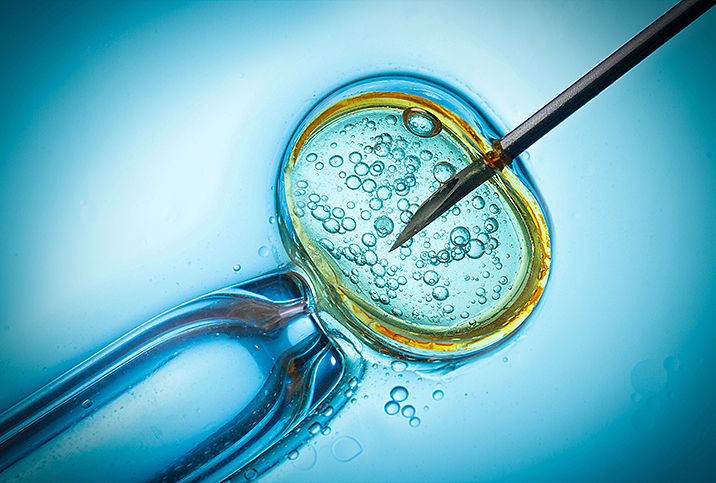The Chances of Success With IVF

In vitro fertilization—the process of combining an egg with sperm outside the body to create a viable embryo—is an increasingly popular option for couples having difficulty conceiving a child on their own, same-sex couples and single parents.
IVF success is determined by a combination of lifestyle and genetic factors, along with choosing the right fertility clinic. Success also depends on the fertility of both parents, including ovulatory function in women and sperm function in men.
The likelihood of becoming pregnant is between 25 and 30 percent per menstrual cycle for healthy couples in their 20s and early 30s. In both men and women, the chances decrease as each decade passes. By the time women reach age 40, they have a 10 percent average conception rate per cycle.
Factors that impact fertility
Aside from age, underlying health conditions can also prevent pregnancy. Surgery, medication or assisted reproduction—through techniques such as intrauterine insemination (IUI)—can help address some of the causes of infertility.
Infertility may be related to many factors, including the following:
- Fallopian tube blockages (from endometriosis or sexually transmitted infections)
- Hormonal imbalances
- Polycystic ovary syndrome (PCOS)
- Thyroid or pituitary issues
- Tube blockages that inhibit sperm flow from the testicles
- Uncontrolled diabetes
In some cases, it’s possible to cure female infertility by merely making healthier choices: maintaining a healthy weight, quitting smoking, not drinking too much alcohol and/or caffeine, and engaging in moderate physical activity.
Men can boost their sperm count and motility by avoiding smoking, heavy drinking and marijuana use.
Calculate your IVF potential
IVF Authority is a San Francisco-based team of fertility specialists who offer reliable information and resources about in vitro fertilization.
To get an idea of your potential IVF success, type your answers into the IVF success rate calculator on the homepage of its website. This calculator considers many of the factors described above to determine your likelihood of IVF success based on data from real patient outcomes.
It’s easy to get caught up in the numbers, but remember, no two couples are exactly alike.
Unexplained infertility is a reality for many couples. Sometimes two seemingly identical cases can produce very different results. In the end, the numbers provided by an online calculator or even by your clinician are only estimates and best guesses, albeit based on experience.
Choose the right fertility clinic
Sometimes fertility clinics appear to have great statistics because they aren’t open to experimental techniques and will work only with couples that have a high chance of conception.
For instance, a couple may be discouraged from doing an IUI—a less expensive and less invasive option—because the success rate isn’t as high as the rate for IVF. Many couples, however, rightfully want to consider such options even if the procedures aren’t going to boost the clinic’s track record.
While the success rate of the fertility clinic is one factor to consider, you should also look for doctors who will listen to you, provide you with options, and give you the time and counseling you need to make an educated decision about your treatment. A good strategy is to set up consultations with a few different clinics before you make a selection.
While it may not seem as scientific, going with your gut may beat out “success rates” when it comes to something as deeply personal as your fertility.

















